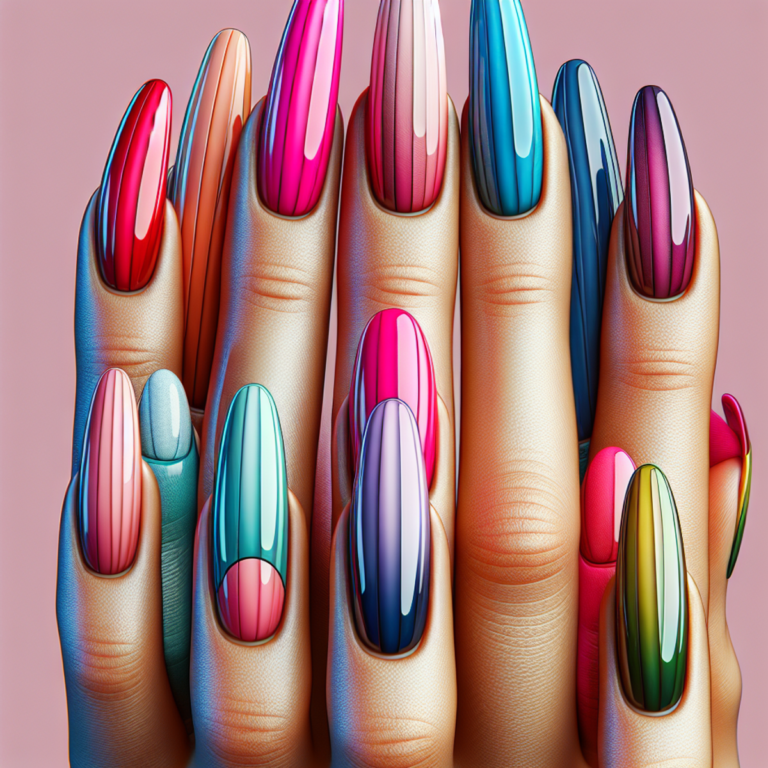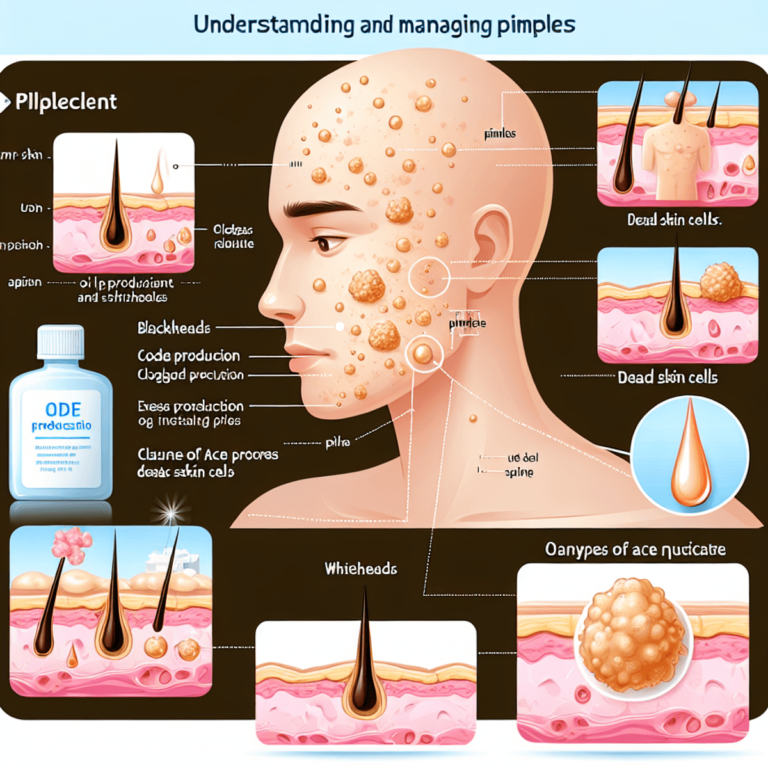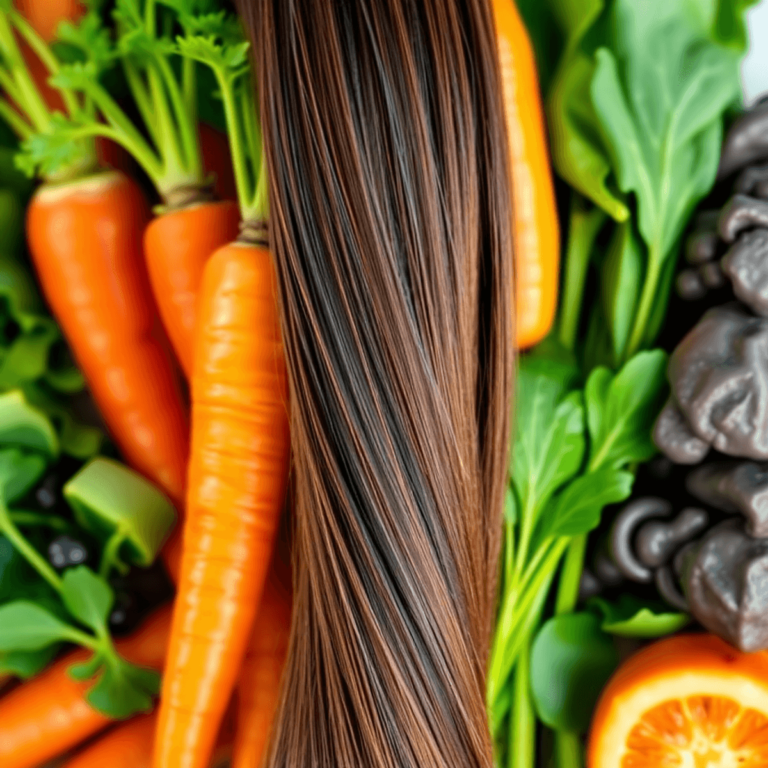How to Treat and Prevent a Dry Scalp, According to Dermatologists

Introduction
Dry scalp is a common condition characterized by flakiness, itching, and irritation on the scalp. It can lead to discomfort in daily life, affecting confidence and overall well-being. Addressing this issue is crucial for maintaining a healthy scalp environment and ensuring optimal hair health. Consulting dermatologists for professional guidance is highly recommended as they can provide tailored solutions and expert advice to alleviate dry scalp symptoms effectively.
Understanding the Causes of Dry Scalp
Dry scalp can be a frustrating and uncomfortable condition that many people experience. It is important to understand the various causes of dry scalp in order to effectively treat and prevent it. In this section, we will explore two significant factors that contribute to dry scalp: dry weather and seasonal changes.
1. Dry Weather and Seasonal Changes
One of the main culprits behind dry scalp is the weather. Changes in climate, particularly during dry seasons or extreme temperatures, can disrupt the natural moisture balance of the scalp. Here are some key points to consider:
- Lack of humidity: During colder months or in arid climates, the air tends to be drier, which can lead to moisture loss from both the skin and scalp.
- Indoor heating: Artificial heating systems used in homes and offices during winter can further dehydrate the air, exacerbating scalp dryness.
- Sun exposure: Prolonged exposure to the sun’s rays can also cause dryness by stripping away essential oils from the scalp.
To protect your scalp during these conditions, here are some tips:
- Cover your head: Wearing a hat or scarf can shield your scalp from direct sunlight and help retain moisture.
- Use a humidifier: Adding moisture to indoor environments with a humidifier can help counterbalance the drying effects of indoor heating systems.
- Avoid excessive heat styling: Heat from styling tools like hairdryers and straighteners can exacerbate dryness. Opt for lower heat settings or air-dry your hair when possible.
By being mindful of these weather-related factors and taking appropriate measures, you can minimize the impact of dry weather on your scalp.
“Protecting your scalp during extreme weather conditions is crucial for maintaining its moisture balance.”
In the next section, we will explore another common cause of dry scalp: dandruff and product buildup.
2. Dandruff and Product Buildup
Dandruff is a common condition that affects many individuals, and it can contribute to the development of a dry scalp. The presence of dandruff flakes on the scalp often comes with itching and discomfort, which can make dryness worse. Understanding the connection between dandruff and dryness is important in effectively treating and preventing a dry scalp.
Causes of Dandruff
One of the main causes of dandruff is an overgrowth of a yeast-like fungus called Malassezia. This fungus loves the natural oils on our scalps and causes irritation, leading to more skin cells being produced. When these dead skin cells build up, they turn into visible flakes that we know as dandruff. The constant shedding of these flakes can upset the moisture balance on our scalps, making them even drier.
The Role of Product Buildup
Apart from dandruff, product buildup can also contribute to a dry scalp. Over time, hair products like shampoos, conditioners, and styling products can leave behind residue on our scalps. This residue can block our hair follicles and stop them from getting enough hydration, resulting in dryness and itchiness.
How to Deal with Dandruff-Related Dryness
To tackle dryness caused by dandruff, it’s important to focus on proper cleansing to get rid of product buildup and control fungal growth. Here are some tips:
- Use an anti-dandruff shampoo: Look for shampoos that contain active ingredients like zinc pyrithione or ketoconazole. These ingredients have antifungal properties that can help reduce the overgrowth of Malassezia. Massage the shampoo into your scalp and leave it on for a few minutes before rinsing thoroughly.
- Exfoliate regularly: Gentle exfoliation can help remove dead skin cells and product buildup from the scalp. Consider using a scrub or brush specifically designed for the scalp to promote circulation and maintain a healthy environment.
- Avoid heavy styling products: Some styling products can contribute to product buildup on the scalp. Opt for lightweight and water-based formulations that are less likely to leave residue behind.
- Practice proper hygiene: Wash your hair regularly to prevent the accumulation of oils and product residue. However, be cautious not to overwash, as excessive shampooing can strip the scalp of its natural oils, leading to dryness.
By addressing dandruff and product buildup, you can relieve dryness and restore the moisture balance of your scalp. Incorporating these practices into your hair care routine will help maintain a healthy scalp environment and prevent future episodes of dryness.
3. Overwashing and Underwashing Habits
Overwashing and underwashing are significant factors that contribute to dry scalp.
Overwashing
Excessive shampooing can strip the scalp of its natural oils, leading to dryness and flakiness. Daily washing, especially with harsh shampoos, can make this problem worse by removing the protective oils that keep the scalp moisturized.
Underwashing
On the other hand, not washing your hair frequently enough can also lead to a dry scalp. Sweat, dirt, and product residue can build up over time, causing itchiness and irritation and making the dryness worse.
Finding the right balance is crucial. You need to know your scalp type and adjust how often you wash your hair accordingly:
- For some people, washing every other day may be suitable.
- Others may find that shampooing once or twice a week works best for them.
By paying attention to how your scalp reacts to different washing frequencies, you can find a middle ground that keeps its natural moisture levels in check without causing excessive dryness or buildup.
Remember that it’s not just about keeping your hair clean; it’s also about maintaining the health and balance of your scalp. Being aware of your scalp’s condition and adapting your hair care routine can go a long way in preventing and treating dry scalp issues caused by overwashing or underwashing.
Effective Ways to Treat Dry Scalp
When it comes to treating dry scalp, one of the most crucial steps is to choose gentle and hydrating hair products. This involves avoiding harsh chemicals commonly found in shampoos, conditioners, and styling products. Instead, opt for formulations that prioritize scalp health with their ingredients.
1. Choosing Gentle and Hydrating Hair Products
- Avoiding Harsh Chemicals: Look for products that are free from sulfates, parabens, and simple alcohols. These ingredients can strip the scalp of its natural oils, exacerbating dryness and irritation. Opt for sulfate-free shampoos and conditioners to maintain the scalp’s moisture balance.
- Benefits of Hydrating Ingredients: Seek out products enriched with hydrating ingredients such as aloe vera, hyaluronic acid, glycerin, and natural oils like argan or jojoba. These components help to replenish moisture, soothe the scalp, and promote overall hydration.
Choosing the right hair products can make a significant difference in addressing dry scalp concerns. By being mindful of the ingredients and their specific benefits, you can effectively nourish and hydrate your scalp for improved health and comfort.
2. Maintaining Optimal Shampooing Frequency
When it comes to treating dry scalp, finding the right balance between cleansing and preserving moisture is crucial. Dermatologists often recommend practical tips and recommendations to alleviate dry scalp issues, including insights on shampooing frequency.
Here are some key points to consider:
- Understanding your scalp: Assess your scalp type and oil production to determine the optimal shampooing frequency. For some individuals, daily shampooing may strip away essential oils and exacerbate dryness, while others may benefit from more frequent cleansing to manage excessive oil production.
- Balancing act: Striking a balance between cleansing the scalp of product buildup, excess oils, and impurities while retaining natural moisture is essential. Consider adjusting your shampooing frequency based on environmental factors such as weather changes and lifestyle habits.
- Hydrating formulations: Opt for sulfate-free shampoos with hydrating ingredients like aloe vera, glycerin, or hyaluronic acid to prevent over-drying the scalp. These ingredients help maintain moisture levels while effectively cleansing the scalp.
- Trial and observation: Experiment with different shampooing frequencies and observe how your scalp responds. Some individuals may find relief from dryness by reducing shampooing frequency, while others may benefit from more regular cleansing routines.
By paying attention to your scalp’s needs and understanding the impact of shampooing frequency on its overall health, you can take proactive steps towards addressing dry scalp issues effectively.
3. DIY Home Remedies for Hydration
Dry scalp can be a bothersome condition that causes discomfort and itchiness. In addition to using gentle and hydrating hair products, there are several DIY home remedies that can help alleviate dry scalp issues. Dermatologists recommend these nourishing hair mask recipes using natural ingredients like coconut oil and avocado:
- Coconut Oil Hair Mask: Coconut oil is known for its moisturizing properties, making it an excellent choice for treating dry scalp. To make a coconut oil hair mask, simply warm up a small amount of coconut oil in your hands and massage it into your scalp. Leave it on for about 30 minutes before rinsing it out with a gentle shampoo. This will help hydrate your scalp and restore moisture.
- Avocado Hair Mask: Avocado is rich in healthy fats and vitamins, making it a fantastic ingredient for nourishing dry scalp. Mash half an avocado and add a tablespoon of olive oil to create a smooth paste. Apply the mixture to your scalp, focusing on the areas that are most dry. Leave it on for 20-30 minutes and then rinse thoroughly with lukewarm water.
- Honey and Yogurt Hair Mask: Honey has humectant properties, meaning it helps attract and retain moisture. Yogurt contains lactic acid, which can exfoliate dead skin cells from the scalp. Mix two tablespoons of honey with half a cup of plain yogurt and apply the mixture to your scalp. Leave it on for 30 minutes before rinsing it out with a mild shampoo.
These DIY hair masks can provide intense hydration to your scalp, helping to relieve dryness and itching. However, it’s important to remember that everyone’s skin is unique, so what works for one person may not work for another. If you have any allergies or sensitivities to the ingredients mentioned above, be sure to do a patch test before applying the mask to your entire scalp.
Tips for Choosing Scalp-Friendly Hair Products
In addition to these DIY remedies, it’s crucial to maintain a consistent hair care routine with scalp-friendly products. Here are some tips for choosing the right hair care products for dry scalp:
- Avoid Sulfates: Sulfates are harsh cleansing agents that can strip away natural oils from the scalp, leading to further dryness. Look for sulfate-free shampoos and conditioners.
- Skip Parabens: Parabens are preservatives commonly found in beauty products. Some studies suggest that they may disrupt hormone function. Opt for paraben-free hair care products.
- Say No to Simple Alcohols: Simple alcohols like ethanol and isopropyl alcohol can be drying to the scalp. Check the ingredient list and avoid products that contain these types of alcohols.
- Look for Hydrating Ingredients: Ingredients like aloe vera gel, hyaluronic acid, and glycerin can provide hydration to the scalp. Seek out products that contain these moisturizing ingredients.
- Choose Lightweight Oils: While heavy oils can weigh down the hair, lightweight oils such as argan oil or jojoba oil can help nourish the scalp without making the hair greasy.
By following these tips and selecting appropriate hair care products, you can create a gentle and hydrating routine that supports a healthy scalp environment.
These DIY home remedies are not meant to replace professional medical advice. If you have severe or persistent dry scalp issues that don’t improve with at-home treatments, it’s best to consult a dermatologist for further evaluation and specialized care.
By incorporating these DIY hair masks into your hair care routine and using gentle, hydrating products, you can effectively address dry scalp concerns and promote a healthy scalp environment.
4. Seeking Professional Treatments: From Dermatological Solutions to Therapies
When it comes to treating persistent dry scalp issues, especially in severe cases, seeking professional help from a dermatologist can be crucial. Dermatologists are equipped with the knowledge and expertise to provide tailored solutions for various scalp conditions. Here are some practical tips and recommendations from dermatologists on how to alleviate dry scalp issues:
- Assessment and Diagnosis: Dermatologists can conduct a thorough evaluation of your scalp condition to determine the underlying causes of dryness. This may involve examining the scalp for signs of dandruff, psoriasis, eczema, or other potential triggers.
- Prescription Topical Solutions: In cases where over-the-counter remedies have not yielded significant improvement, dermatologists may prescribe specialized topical treatments. These can include medicated shampoos, corticosteroid solutions, or prescription-strength anti-inflammatory formulations to address inflammation and itchiness.
- Medical Procedures: For severe and persistent dry scalp conditions, dermatologists may recommend advanced medical procedures. These could involve targeted therapies such as phototherapy (light therapy) to address underlying skin inflammation or laser treatments for specific scalp concerns.
- Personalized Treatment Plans: Dermatologists can create personalized treatment plans based on individual scalp health needs, taking into account factors such as skin sensitivity, allergies, and overall health conditions.
It’s important to note that seeking professional guidance is particularly crucial if you experience chronic itching, flaking, or discomfort despite trying various home remedies or over-the-counter products. By collaborating with a dermatologist, you can access comprehensive care and effective interventions tailored to your specific scalp concerns.
Remember that while home care strategies are valuable for general scalp maintenance, severe or persistent dry scalp issues may require the expertise of a board-certified dermatologist. Seeking timely professional advice can lead to targeted treatment approaches that address the root causes of dryness and promote long-term scalp health.
By consulting with a dermatologist, you can gain access to advanced treatment options and expert guidance that goes beyond typical over-the-counter solutions. Don’t hesitate to reach out to a dermatology specialist if you find yourself grappling with ongoing dry scalp challenges that impact your comfort and well-being.
Prevention Tips to Maintain a Healthy Scalp
Dry scalp can be a persistent concern, but with the right preventive measures, you can maintain a healthy and nourished scalp environment. Here are some essential tips for preventing dry scalp and promoting overall hair and scalp wellness.
1. Nurturing a Consistent Hair Care Routine with Scalp-Friendly Products
When it comes to preventing dry scalp, choosing the right hair care products is crucial. Consider the following key factors when selecting scalp-friendly products for a healthy and balanced scalp environment:
- Gentle Formulations: Opt for shampoos, conditioners, and styling products that are free from harsh chemicals such as sulfates, parabens, and synthetic fragrances. These ingredients can strip the scalp of its natural oils, leading to dryness and irritation. Look for gentle, pH-balanced formulations that cleanse the hair and scalp effectively without causing excessive dryness.
- Hydrating Ingredients: Seek out products that contain hydrating ingredients known for their moisturizing properties. Ingredients such as aloe vera gel, hyaluronic acid, and lightweight oils like argan or jojoba can help replenish moisture in the scalp and hair while maintaining a healthy balance.
- Allergen-Free Formulas: If you have sensitive skin or are prone to allergic reactions, choose hair care products that are free from common allergens and irritants. Look for mild surfactants and fragrance-free options to minimize the risk of irritation and dryness.
- Scalp-Specific Treatments: Consider incorporating scalp-specific treatments into your routine, such as exfoliating scrubs or soothing serums designed to promote scalp health. These targeted treatments can help address specific concerns like product buildup or flakiness while maintaining optimal scalp hydration.
By nurturing a consistent hair care routine with scalp-friendly products, you can proactively prevent dry scalp and create an environment that supports overall scalp health.
Remember that prevention is key when it comes to maintaining a healthy scalp. By making informed choices about your hair care products and establishing a regular routine, you can effectively safeguard against dryness, irritation, and other common scalp concerns.
2. Protecting the Scalp from Environmental Aggressors
Dry scalp can be worsened by things like sun exposure and pollution. Here’s how to prevent dry scalp from coming back:
- Wear a hat: Putting on a hat or cap when you’re outside can physically shield your scalp from the sun and help keep moisture in.
- Use scalp sunscreen: Applying sunscreen specifically made for your scalp can give you extra defense against harmful UV rays. Look for lightweight, non-greasy options that won’t make your hair heavy.
It’s important to protect your scalp from environmental aggressors so it stays healthy and doesn’t get dry. Making these protective steps part of your daily routine can help keep your scalp balanced and well-nourished.
3. Stress Management for Overall Scalp Health
Stress is a common factor that can contribute to various health issues, including scalp conditions like dryness and itching. When we experience stress, our body releases hormones that can disrupt the natural balance of our skin and scalp. Therefore, managing stress is crucial for maintaining a healthy scalp environment. Here are some key points to consider:
- Exploring the mind-body connection: The mind and body are interconnected, and stress can manifest physically, including on the scalp. By addressing stress levels, we can positively impact our overall well-being, including scalp health.
- Meditation techniques: Engaging in mindfulness practices, such as meditation or deep breathing exercises, can help reduce stress levels. Taking a few minutes each day to focus on your breath and calm your mind can have a significant impact on your scalp health.
- Regular exercise: Exercise not only helps alleviate stress but also improves blood circulation throughout the body, including the scalp. Increased blood flow delivers essential nutrients and oxygen to the hair follicles, promoting a healthy scalp environment.
- Quality sleep: Adequate sleep is essential for overall health, including scalp health. During sleep, our body repairs and rejuvenates itself. Lack of sleep can increase stress levels and affect the natural balance of our skin and scalp.
- Healthy lifestyle choices: Making healthy lifestyle choices such as consuming a balanced diet rich in vitamins and minerals, staying hydrated, and avoiding excessive alcohol consumption and smoking can help support a healthy scalp environment.
By incorporating these stress management techniques into your daily routine, you can create a harmonious balance between your mind and body, promoting optimal scalp health. Remember that everyone’s stress triggers are different, so it’s important to find what works best for you. Whether it’s practicing meditation, engaging in physical activity, or adopting healthy habits, find what brings you peace and make it a priority.
When to Seek Professional Advice from a Dermatologist
Here are some indications that it’s time to consult a dermatologist for specialized care of your dry scalp condition:
- Persistent and severe dryness or flakiness despite using over-the-counter treatments
- Experiencing intense itching, redness, or irritation on the scalp
- Development of open sores or signs of infection on the scalp
- Sudden and unexplained changes in the scalp condition
- Previous history of skin conditions such as eczema or psoriasis that may impact the scalp health
- Unsuccessful attempts to identify and address the underlying cause of the dry scalp issue
If you notice any of these signs or symptoms, seeking professional advice from a dermatologist can provide personalized treatment recommendations and interventions tailored to your specific scalp condition. A dermatologist can conduct a thorough assessment to determine the root cause of your dry scalp and offer targeted solutions that may include prescription-strength medicated shampoos, topical treatments, or other advanced therapies designed to alleviate persistent dryness and restore scalp health.
Remember, early intervention by a dermatologist can lead to effective management of your dry scalp concerns, preventing potential complications and promoting long-term scalp wellness.
Conclusion
Here are the key takeaways from this guide:
- Early Intervention is Key: Addressing dry scalp issues at the earliest signs is crucial for preventing discomfort and maintaining a healthy scalp environment.
- Proper Maintenance Matters: Consistent care with gentle and hydrating hair products, along with protective measures against environmental aggressors, can contribute to long-term scalp health.
- Consult Dermatologists for Specialized Care: When over-the-counter solutions prove ineffective, seeking professional advice from dermatologists is essential for tailored treatment plans.
- Empower Your Scalp Health: By staying informed about the causes, treatments, and prevention of dry scalp, you can take proactive steps to nurture a nourished and balanced scalp.










